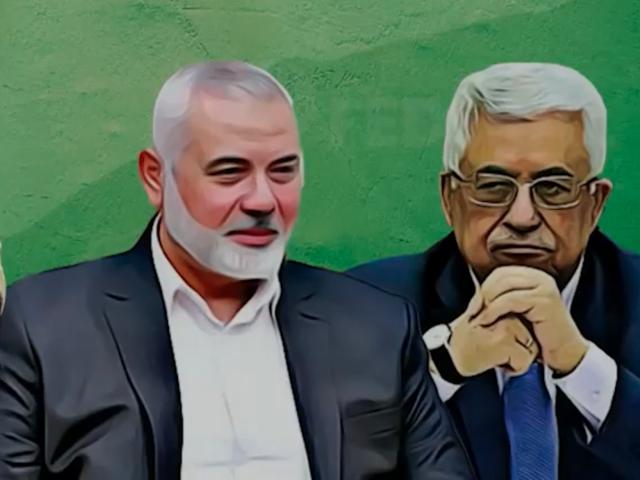Amidst the backdrop of ongoing conflict and geopolitical tensions, the internal dynamics within Palestinian politics have taken a notable turn. President Mahmoud Abbas, under considerable pressure from the United States to initiate significant reforms within the Palestinian Authority (PA), has made a controversial move by appointing Mohammad Mustafa, a trusted advisor and seasoned economist, as the new Prime Minister. This appointment, made on March 14, is intended to spearhead the creation of a government capable of navigating the challenging post-war landscape in Gaza.
The appointment of Mustafa, while signaling to the international community—particularly the American administration—Abbas's commitment to the much-discussed reforms, has not been without its critics. Mustafa, despite his credentials, is seen by some as a symbolic figurehead, representing a superficial change rather than a genuine effort towards substantial reform. This sentiment stems from the perception of Abbas's leadership style as being increasingly insular, consolidating power within a close-knit circle of advisors and distancing the PA further from the political and social realities of the Palestinian populace. It had been speculated that Abbas himself would step down and make way for a new leadership structure. Abbas, heir to the controversial Yasser Arafat who established the mechanism and infrastructure that enables Palestinian leaders to enrich themselves, was elected to a four year term nearly eighteen years ago.
Fatah correctly accuses Hamas of reinstating direct Israeli rule over Gaza at the cost of a “sea of Palestinian blood.”
— Hussain Abdul-Hussain (@hahussain) March 17, 2024
Why did Fatah wait so long? Those of us who’ve been blaming Hamas have been accused of treason and being “Zionist passing.”
I guess better late than never. https://t.co/Tx2G60XrWM
This internal restructuring has ignited a fiery response from Hamas, the most vocal among Abbas's critics. In a joint statement with the Islamist terror group Islamic Jihad, the Marxist group Popular Front for the Liberation of Palestine, and democratic activist Mustafa Barghouti, issued on March 15, Hamas condemned the unilateral decision to form a new government, labeling it a direct affront to the collective will of the Palestinian people. The statement underscored the deepening divisions within Palestinian society, accusing the PA of adopting exclusionary policies and marginalizing significant factions within the political landscape, notably Hamas itself.
The Fatah movement, with Abbas at its helm, has responded to these criticisms with equal fervor. Fatah's retort underscored the irony of Hamas's position, questioning the legitimacy of its objections given its own unilateral actions and decisions that have significantly impacted the Palestinian cause. Fatah pointedly criticized Hamas for its role in exacerbating the Israeli occupation in Gaza, invoking the term "Nakba" (catastrophe) to draw parallels between Hamas's actions and the historical grievances of the Palestinian people. Even invoking the term Nakba was controversial. Outwardly, it is often used by anti-israel activists to refer to a mass expulsion of Arabs in the early days of the Jewish State, an event that never occurred. The term was coined initially in 1949 to lament the embarrassment of a pan-Arab collective of five armies, in their failure to eradicate the new State of Israel during the 1948 Arab-Israeli war, but was rebranded by Fatah in the 1970s in a public relations pivot that was meant to portray the Palestinians as an ancient nation displaced by colonial settlers.
The fight between Muslim Arabs in Jerusalem has now spread into the street pic.twitter.com/U5nJt3IVS2
— Documenting Israel (@DocumentIsrael) March 17, 2024
Fatah's Nakba statement, articulated with a mix of bewilderment and sarcasm, challenges Hamas's authority to set national priorities, citing specific instances where Hamas acted independently, without consulting the broader Palestinian leadership. These instances include engagements with Israel that led to considerable concessions and a contentious coup in 2007 that solidified divisions within Palestinian society.
The party's communication was also laden with sarcasm and severe rebukes, questioning whether Hamas would prefer an Iranian-appointed Prime Minister, thereby underscoring the absurdity of Hamas's position. Fatah's message also touched upon the perceived disconnect between Hamas's leadership and the realities on the ground, highlighting the contrast between the leaders' comfortable lives abroad and the dire situation faced by Palestinians amid conflict. The irony of this dig by Fatah is that many of their leaders live abroad in luxury as well. Arafat's wife and daughter, who has never stepped foot in Palestine at all, are estimated to be worth over $8 Billion and several leaders live in tony neighborhoods in London and Paris.
“It seems that the comfortable life of the Hamas leadership in luxurious hotels had blinded them. Why do the organization’s leaders live abroad, and why did their families flee and leave the Palestinian people to face the war without any protection?” - Fatah, PLO pic.twitter.com/RS116KS23f
— Avi Kaner ابراهيم אבי (@AviKaner) March 17, 2024
Through this exchange, the fissures within Palestinian politics are laid bare, illustrating the complex interplay of internal politics, international diplomacy, and the ongoing struggle for Palestinian self-determination. The discourse between Fatah and Hamas reveals not just a political rivalry but a profound disagreement over the path forward for the Palestinian people, amidst the broader context of conflict and aspirations for statehood.


